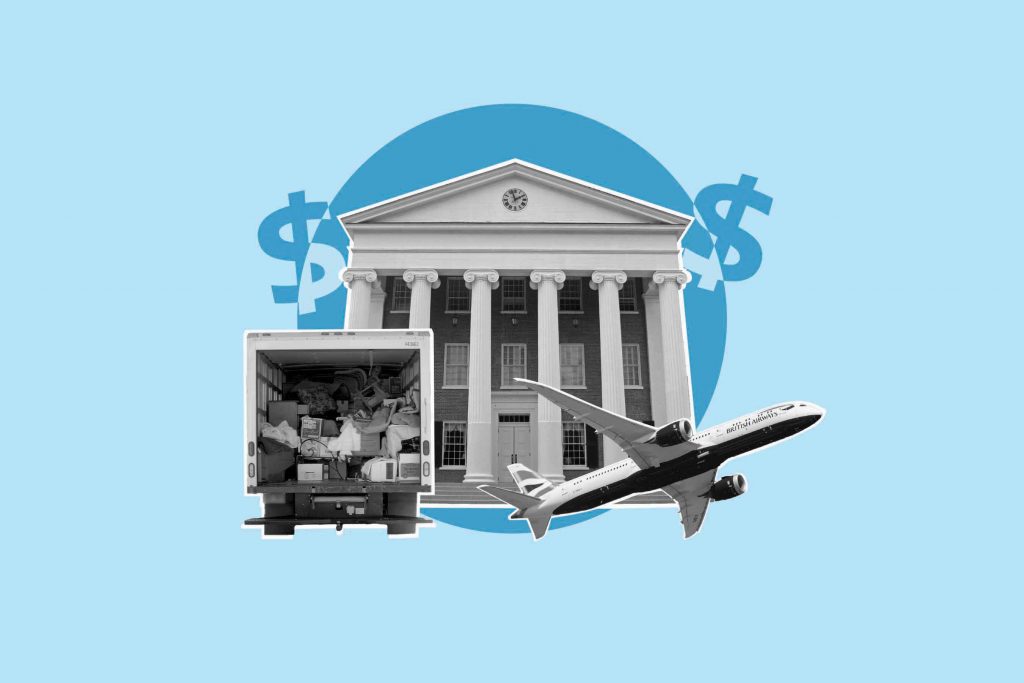Gov. Tate Reeves announced a statewide stay-at-home order on Wednesday afternoon, making Mississippi the 34th state to do so in response to the spread of COVID-19.
For weeks, Reeves resisted local and national pressures to issue an order, arguing that cases in Mississippi had not reached levels that justified effectively shutting down the state’s economy. State health officials convinced Reeves that action was necessary on Tuesday evening as Mississippi reached 1,073 confirmed COVID-19 cases and 22 deaths.
“Our goal in the short term is to prevent our healthcare system from being overwhelmed. I pray that all of our orders in our preparations will be enough. We believe that this is the right tool at the right time to save lives,” Reeves said.
The shelter-in-place order will be in effect from 5 p.m. Friday until 8 a.m. April 20. Reeves said that shelter-in-place orders are “not sustainable for months on end” and that he would open the state as soon as health experts say it is safe to do so.
The guidelines for the order are:
• Individuals are to stay at home, leaving only to perform essential activities, such as caring for someone in the vulnerable population, getting food or necessary supplies and working for an essential business.
• When outside of their homes, people must follow social distancing guidelines by maintaining a 6-foot distance from others and avoid groups of 10 or more.
• Evictions are suspended, though people are still required to pay any rent or make any mortgage payments.
• AU nonessential businesses are to stop all activities other than those necessary for minimum operations (e.g. payroll, health insurance, security) and enabling employees to work from home.
• Social and other non-essential gatherings in groups of more than 10 people must be cancelled or rescheduled.
• Restaurants and bars may only remain open for drive-thru, curbside, and/or delivery service.
• Individual outdoor recreation is encouraged, but not group recreation or activities such as soccer or basketball games (walking trails will stay open).
State health officer Dr. Thomas Dobbs warned that “we really are still at the front of this thing.”
Dobbs said the stay-at-home order is a tool that will strengthen state efforts in tracking and isolating those with the virus and also ensure that those who contract it receive the medical care necessary to maximize their chances at recovery.
“This isn’t going to be a cure. It’s not going to stop the coronavirus, but what it will do is it will cause an additional pause,” Dobbs said. “The social distancing measures have been useful, but this additional measure will be that much more useful to slow it down.”
Reeves said that law enforcement will increase efforts to break up groups defying the order. Though the ban on large social gatherings has been in effect for weeks, beaches on the Gulf Coast were still crowded over the weekend.
“We know that there are some who still do not have a healthy fear of this virus. They are wrong, and they are risking lives if they do not take this very, very seriously. While they may not be risking their own lives, they certainly are risking the lives of their moms, their grandmoms, their dads, their granddads,” Reeves said.
The state is following the critical infrastructure list released by the Cybersecurity and Infrastructure Security Agency of Homeland Security to determine what constitutes an essential business. The order closes places like beaches, parks, movie theaters and bowling alleys. Liquor stores and churches are among places that will be allowed to remain open. While Reeves said he does not think the government can shut down churches, he does think it can limit their ability to gather groups of 10 or more.
Public schools are currently closed through April 17, and Reeves said he is not yet ready to extend the closure.
Mississippi reported 136 new COVID-19 cases on Wednesday, the highest single-day increase so far. The number of confirmed cases has increased rapidly as testing has become more widely available. As of 6 p.m. Tuesday night, the MSDH Public Health Laboratory has issued 4,785 tests.












